The lure of a destination wedding is hard to resist – a trip to somewhere out of the norm, with the love of your life, to make that significant and symbolic jump to starting your lives together as a married couple. Destination weddings are popular for several reasons, including that they make it possible for couples to have an amazing, once-in-a-lifetime experience away from home. Just like all other weddings, you can customise your destination wedding to suit your preferences, inviting as many, or as few guests as you’d like. Whether you’re dreaming about a beach wedding, a traditional church affair, a garden wedding, an elopement wedding, or something more unconventional, a destination wedding will give you plenty of room to bring your wedding aspirations to life.
In this article on the Sandals Blog:
What is a destination wedding?
Why choose a destination wedding?
How to plan a destination wedding?
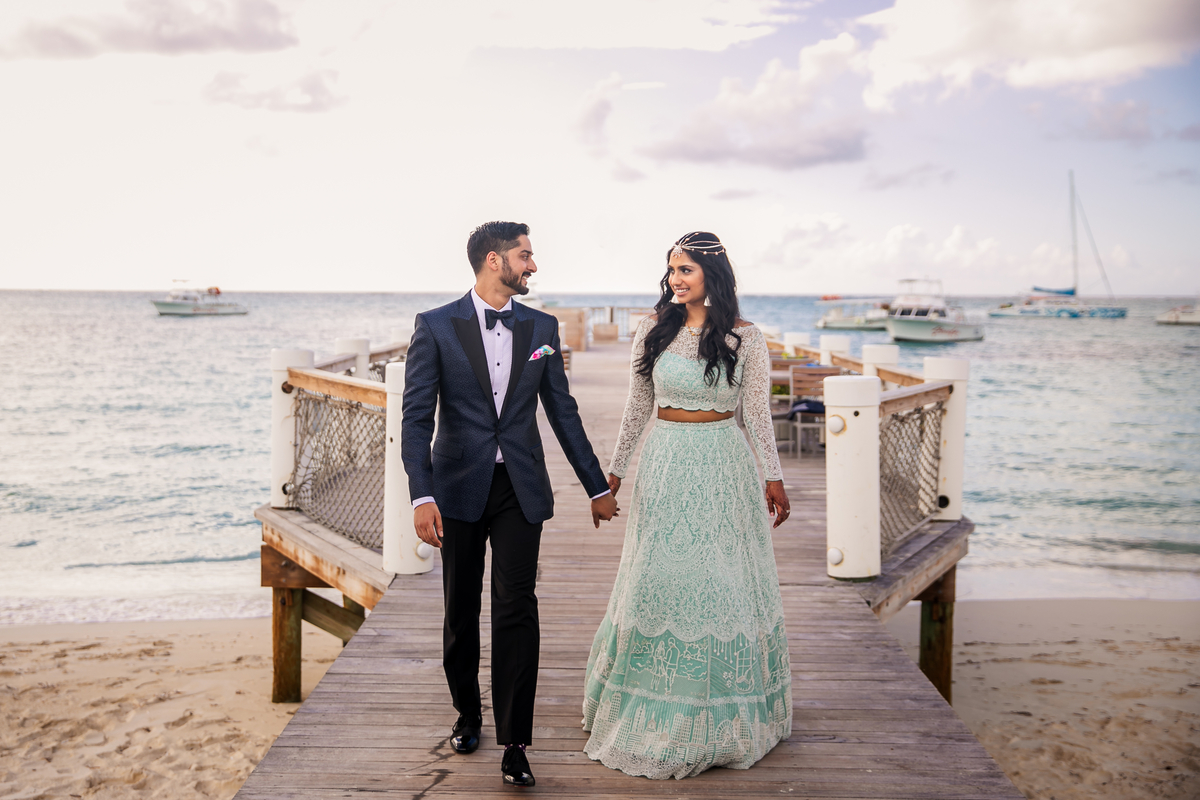
Picture: Beachfront wedding at Beaches Turks & Caicos.
A destination wedding is a wedding that takes place at a location that is far enough for a majority of the guests to make travel arrangements and book nearby accommodation. Destination weddings can be hosted in the country the majority of the guests live in, but these kinds of events are normally hosted abroad. Destination weddings often take place in an unusual setting, breaking free from the norm. Since these ceremonies are typically smaller in size, compared to traditional weddings, destination weddings tend to result in lower costs.
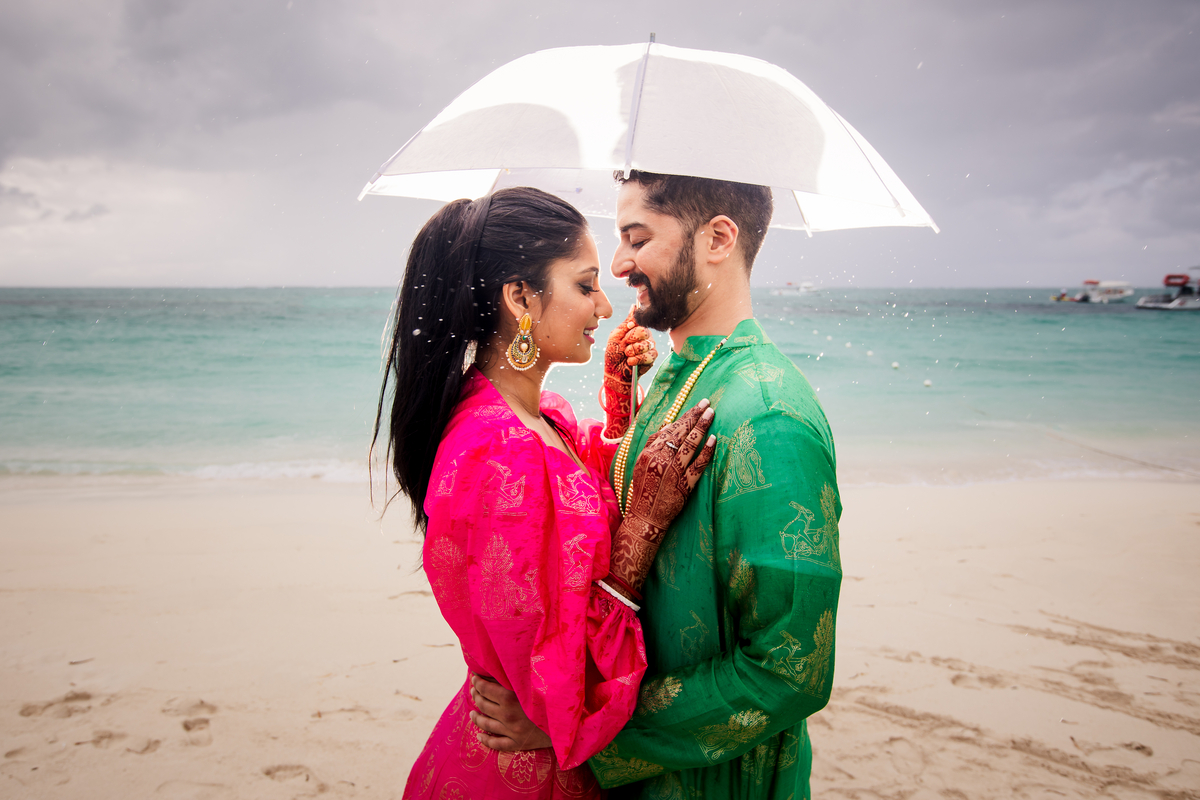
Picture: Beachfront wedding at Beaches Turks & Caicos.
There are many reasons couples decide to have a destination wedding, and one of these is that it allows you to have a wedding in a foreign, and often exotic location, without having to break the bank. You can save money in some areas and spend more in others… or save all around. Having a resort destination wedding for example, ups the excitement, and provides you with a wedding planner or coordinator who will help to ensure things run smoothly on the day. Here are some of the other reasons people choose destination weddings:
Even with all these benefits, destination weddings are simply not for everyone. Couples who want to invite more people, but do not want to be financially constrained regarding the number of people attending, would likely do better with more traditional options. Couples with family obligations who haven’t got much spare time on their hands may find a destination wedding is also not the best option. Nevertheless, if you can afford to get away, and make the time, then it’s likely to be one of the best experiences of your life.

To start off the wedding planning process, you’ll first need to create a checklist. This is basically a wedding to-do list which will help you streamline what needs to be done, and when. Once you decide on the type of wedding you’d like to have, you’ll be able to get things together fairly quickly with a wedding checklist.
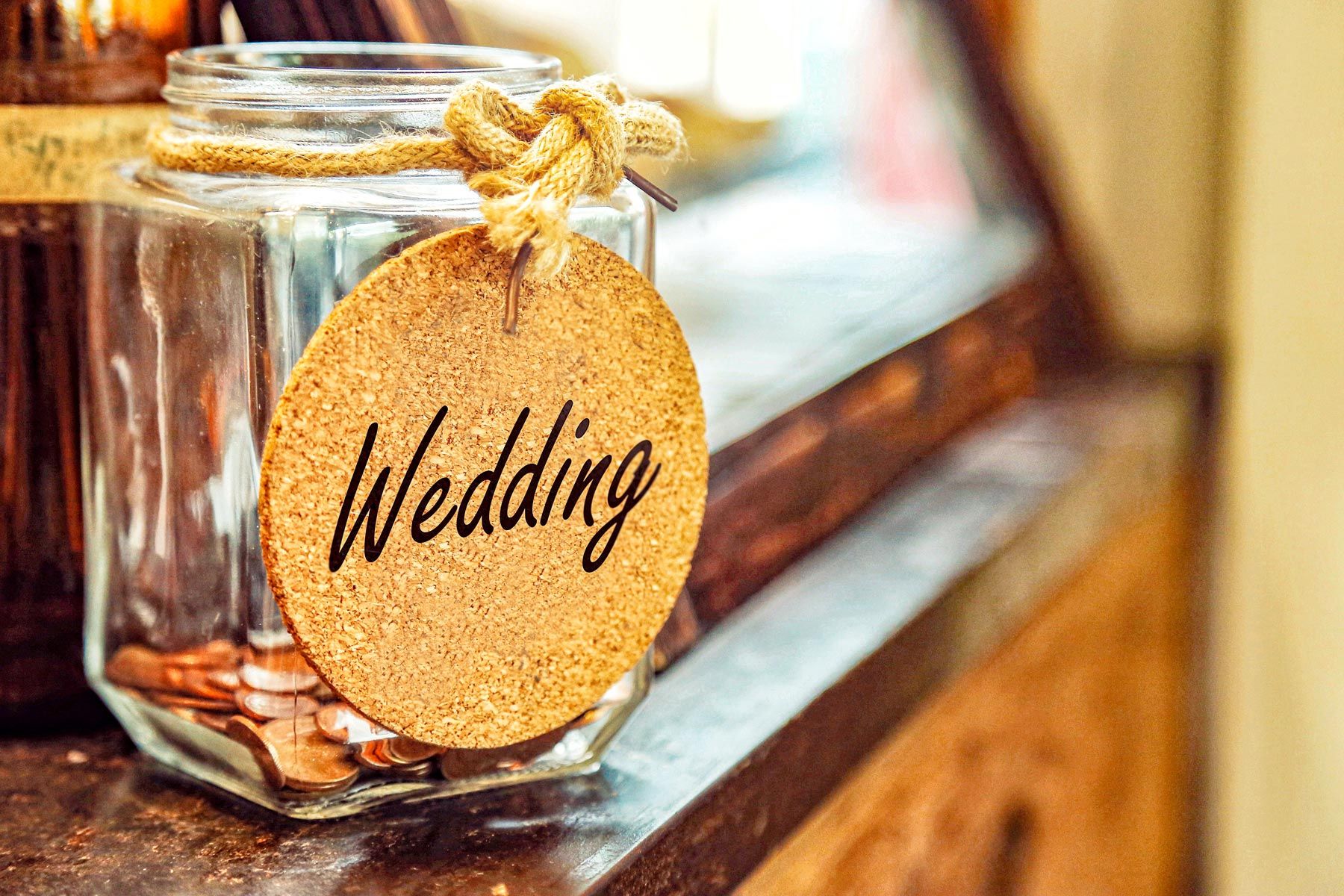
You’d be surprised to know that a destination wedding can sometimes be cheaper than a ceremony closer to home. To save money on your destination wedding, the key thing is to prioritise. Knowing what you won’t be spending on will let you know how much more room you have in other areas to spend a bit more. You can also save money on things like flowers, by giving the florist room to choose between flowers of the same colours or shades, rather than selecting a single flower type, which may be more expensive. All and all, the best way to save money is to shop around!
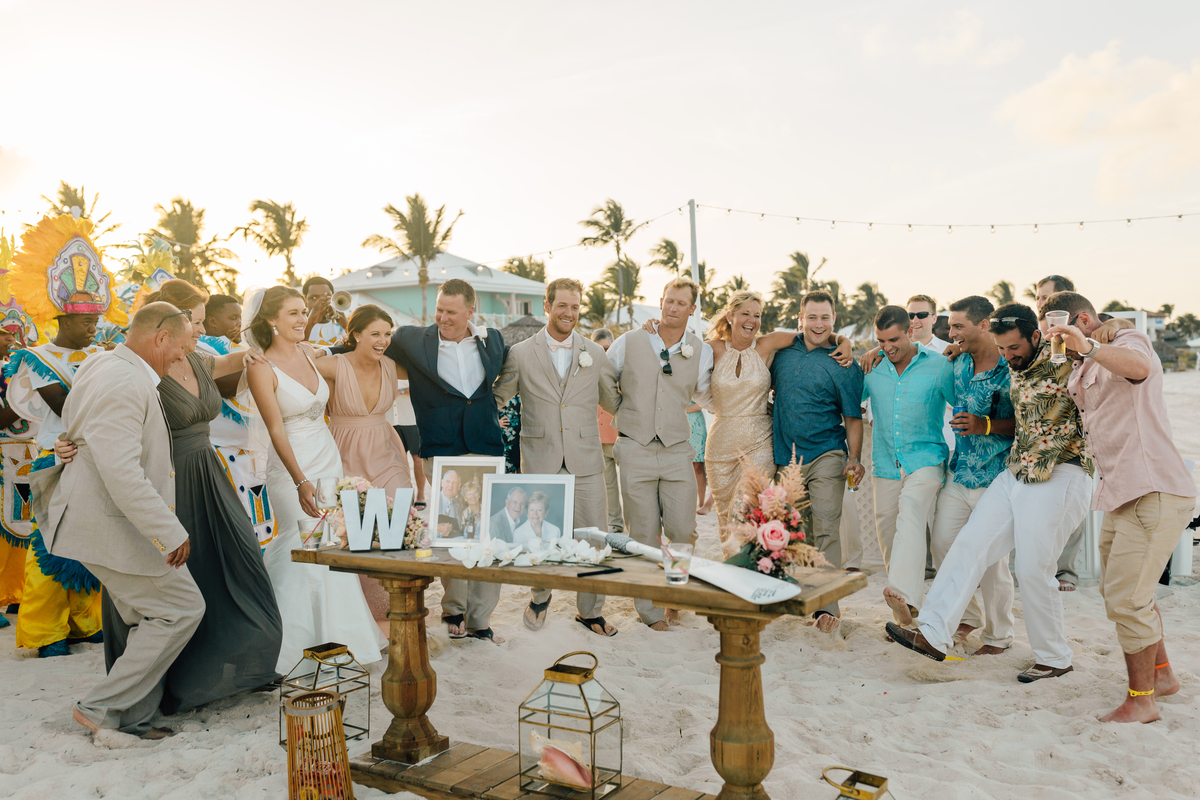
Before going crazy with the invites, you’ll first need to think about your budget, and whether you want to have a large or small wedding. If you decide to have a destination wedding, you’ll need to gauge which of your friends and family members will be able to travel to your location for the event, and how long it will take them to get there if they do. A good rule of thumb for destination weddings is to invite the most important people that you think will make a positive impact on your day with their presence. If a few people get cut from the list, don’t worry so much as you’ll be able to have a reception for them once you return home (if you choose).
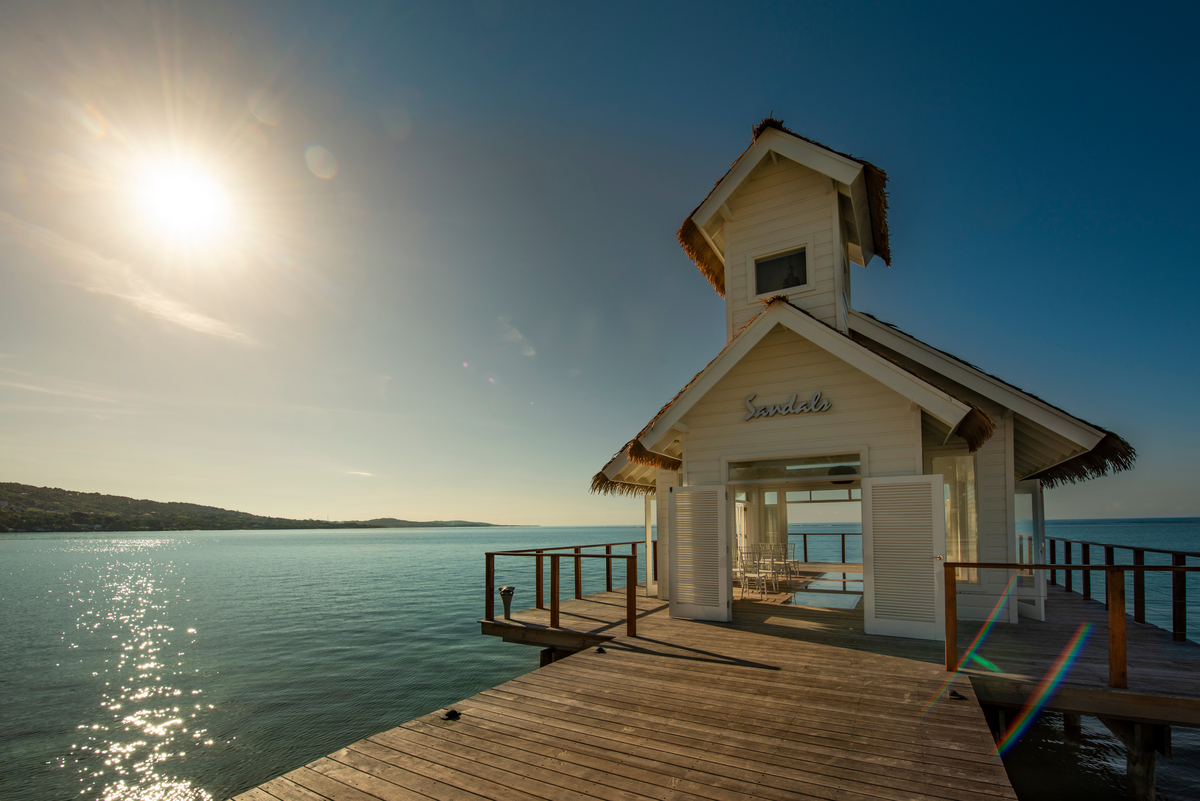
Picture: Over-the-water chapel, available at Sandals South Coast.
The first step would be to decide on a destination which would both fit within the budget of you as a couple, as well as the budget of the most important guests.
After you’ve selected your destination, the next stop is the venue. Think about where you want the ceremony to take place, and where the reception/party will be. These could both of course be the same venue. Consider the various aspects you’d like to include, like a bar for example. Will it be an open bar, and what kinds of drinks and canapès do you plan on serving? Some people pull out all the stops in this regard, giving guests plenty of options, while others go for bars sans alcohol. The choice is up to you as a couple!
Expert tip: Don’t want to worry about how much money to spend on food and drinks for the guests? Host a wedding at an all-inclusive resort where all meals and (alcoholic) beverages are included!
Some unconventional venues include a forest wedding, a ceremony at a private home or villa, a luxury resort or on a tropical beach (often the last two pair together). Some couples even choose ruins, cabins, warehouses, or barns as their wedding venue. Another amazing option you might not have thought of before, is one of Sandals’ overwater chapels.
(IMG: overwater chapel outside + inside)

Some of the common documents required for a destination wedding include your birth certificate and passport, proof of divorce or death certificate (for divorcees), change of name documents, written authorisation for parties under 18, and your marriage licence.
There are some places where you need to establish residency before getting married. In most cases this can be done within a 48–72 hour residency period. Check whether your marriage will be recognised as legal in the country you live in. For some destinations, you’ll need to be of the legal age to marry or have consent from both parents if under the age of 21.
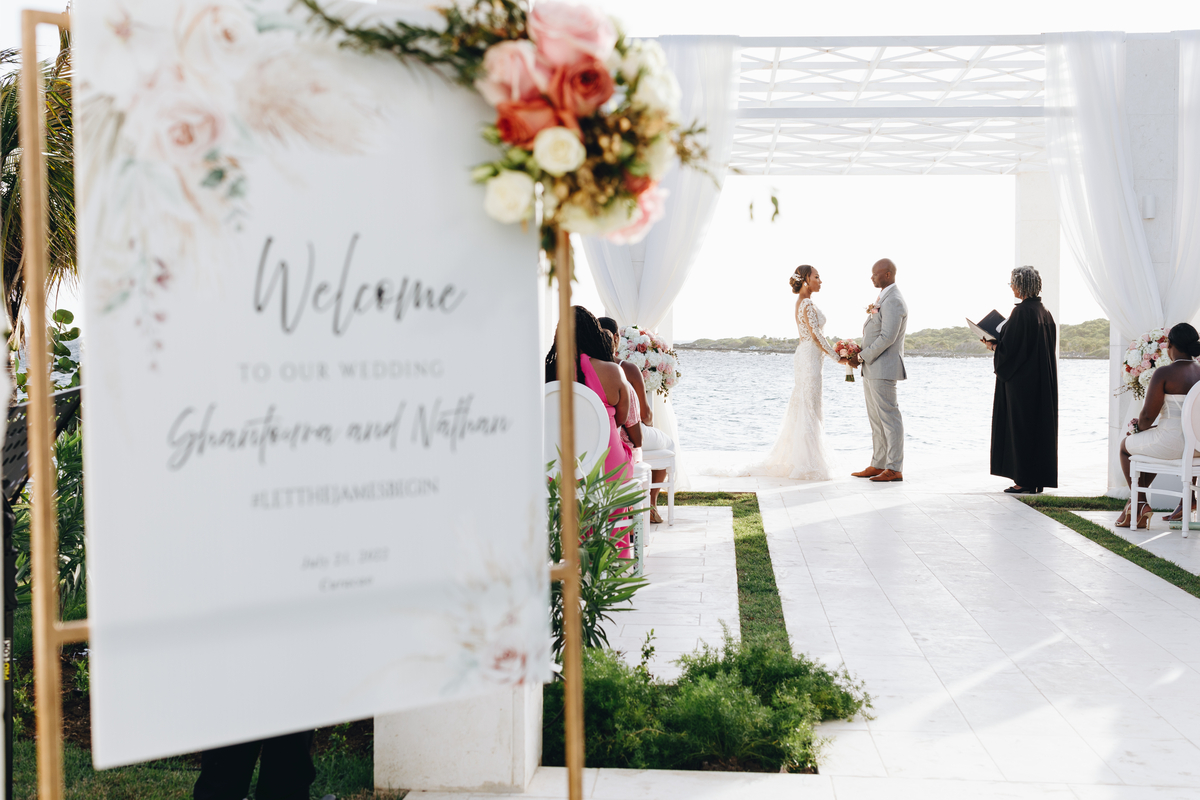
Did you know that friends can officiate your wedding in some destinations? This is totally possible, and you’ll need to do some research within the territory where you’re planning to tie the knot, to find out if and how this applies. Some couples do this to save money and make their wedding extra special. Otherwise, you can settle for a certified officiant to ensure the ceremony is completely legalised.

Some couples choose to include a map of the venue in their invites. This is great when the wedding is taking place in a remote destination. Think about whether you’re going to invest in getting your invite designed, or whether you’d like to buy something premade. Send invites out as early as possible, so guests can save up for their travel arrangements and get some time off.
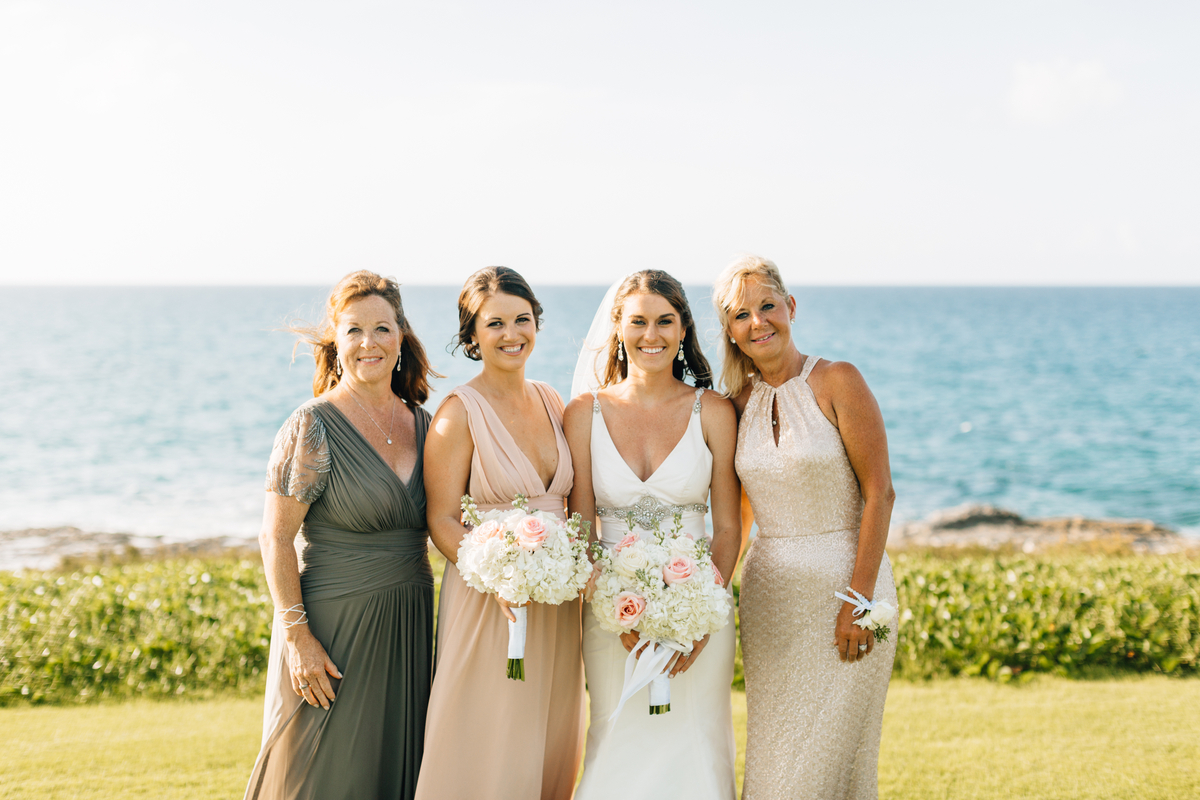
If you’ve got an artistic touch, or you know what you want, selecting a theme and colour scheme will come easily to you, otherwise it might be best to leave this up to your wedding planner, giving them hints of what you want the final result to be. If you want guests to dress according to a particular theme, or wear a certain colour, include this in your save-the-date cards, or official wedding invites.
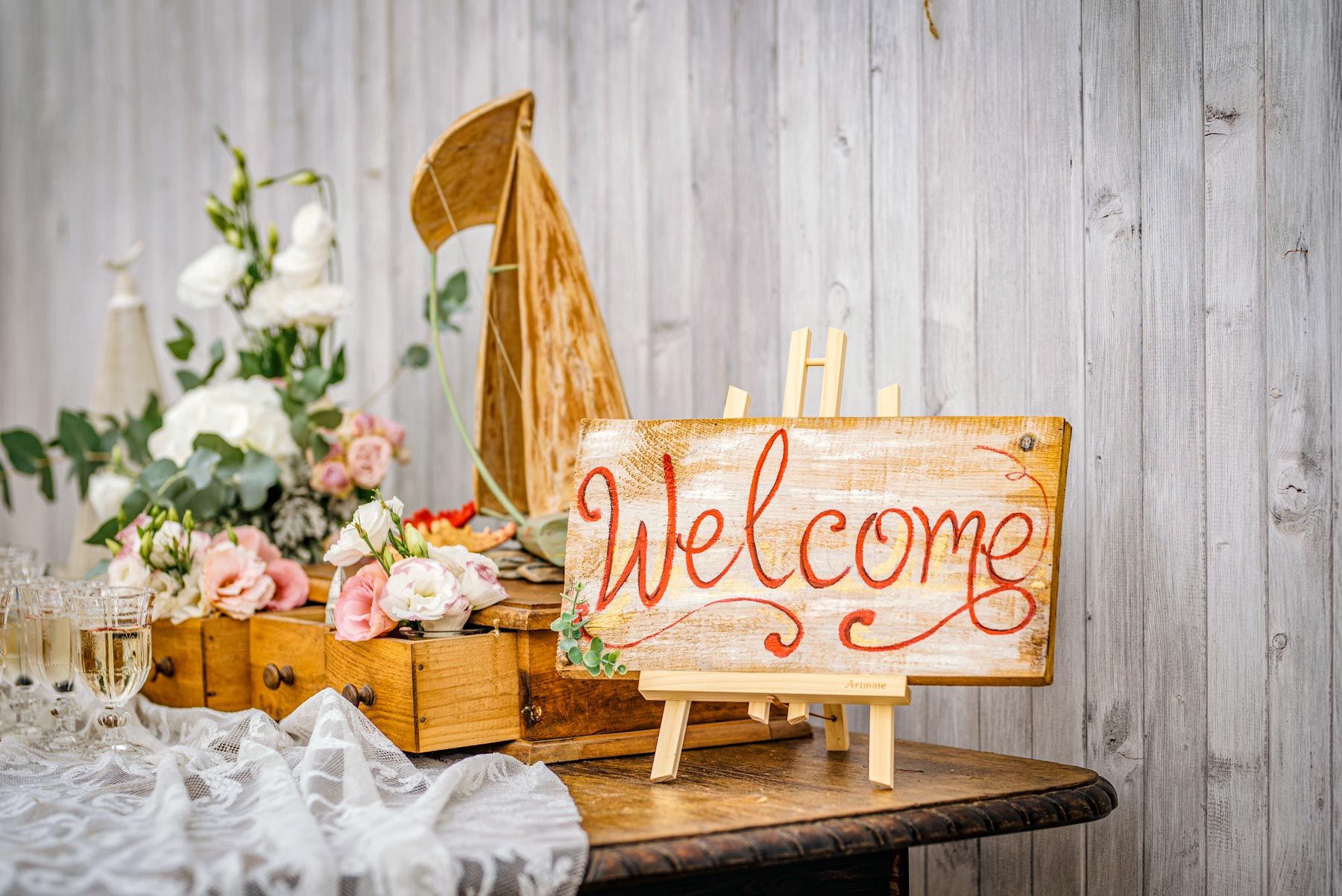
A welcome sign is one of those details that you can personalise to suit you, which helps guests feel welcome once they arrive. This is a great touch for a destination wedding as it helps to bring people together and feel more comfortable.
Place cards are fun because they can be customised to suit your theme. They don’t even necessarily need to be written on paper; some people use leaves, napkins, and other stationery to personalise their wedding further.
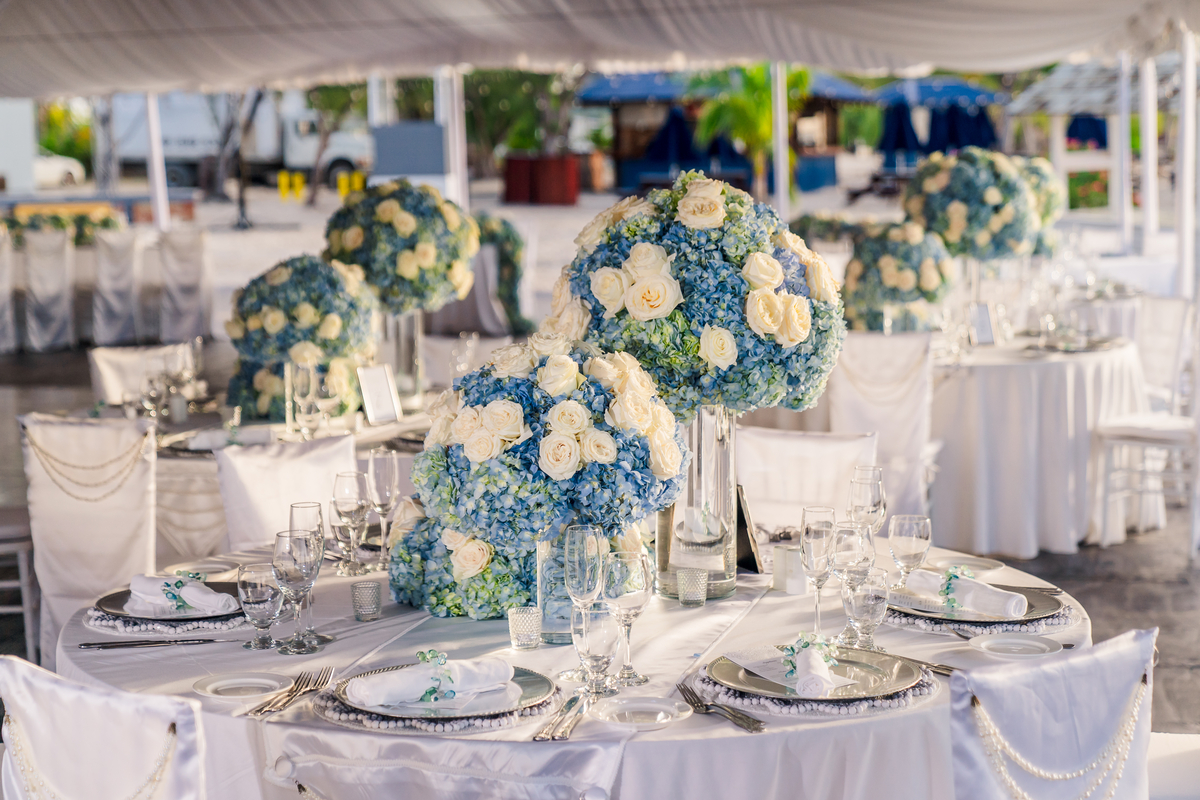
Flowers are often a big part of weddings but are not essential. Your destination wedding will without a doubt be located in a beautiful location amongst nature and all its beauty. However, if you do decide to incorporate flowers, consider whether you’re planning on having an indoor or outdoor wedding. With beach weddings for example, you’ll need to choose flowers than can withstand the heat and won’t get whisked away in the sea breeze.
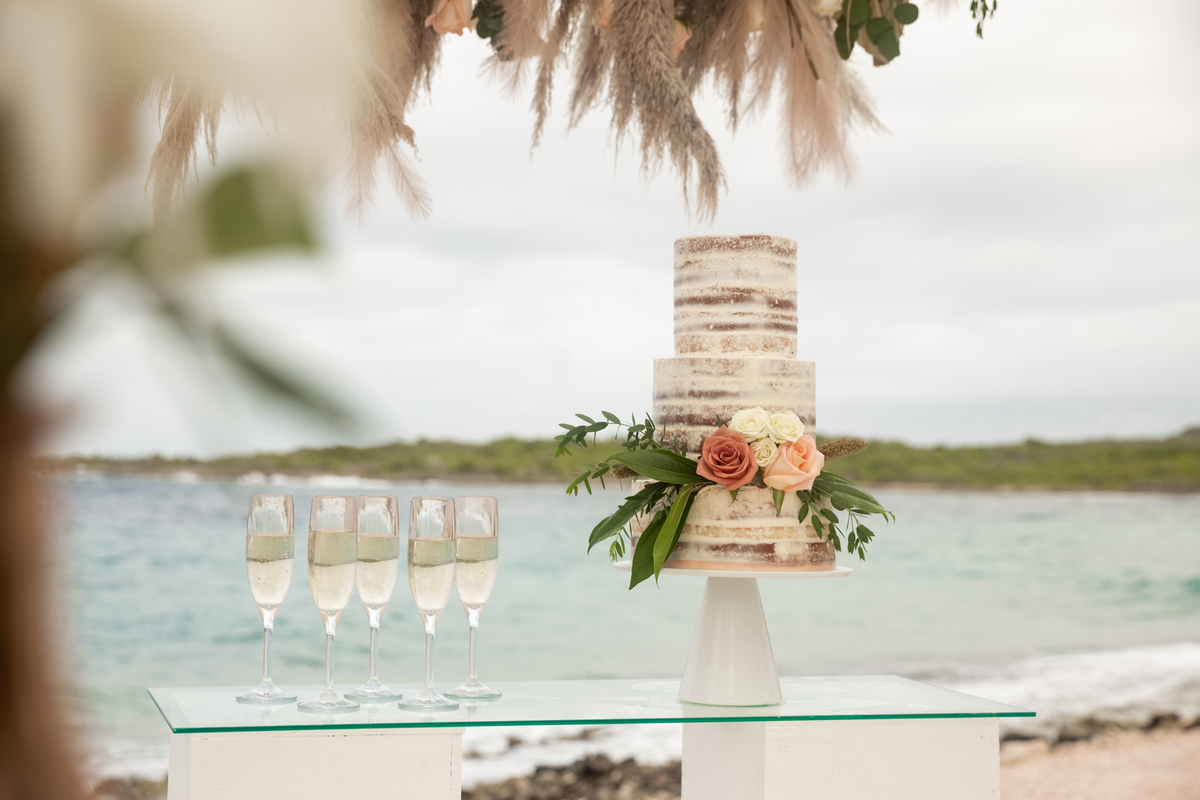
Cakes are popular, but also still optional. You can choose a more traditional tiered cake, go for something elaborate and personal to you, or go with tastefully decorated cupcakes. Either way, it’s entirely up to you and how the cake ties into your venue. Consider whether there’s room to store the cake once it’s been cut, as you may not want to leave it out in the sun for too long. If you’re getting married outdoors, have your cake decorator use ingredients that will stand up to the sun. If you’re staying at a resort, find out if a cake is included in your destination wedding package.
A seating chart, or carefully arranged place cards (or both), will help everyone to their seats for the ceremony. Get a map of the wedding venue, spend some time figuring out who should sit where, and theme your chart or place cards to suit your wedding theme, if there is one.
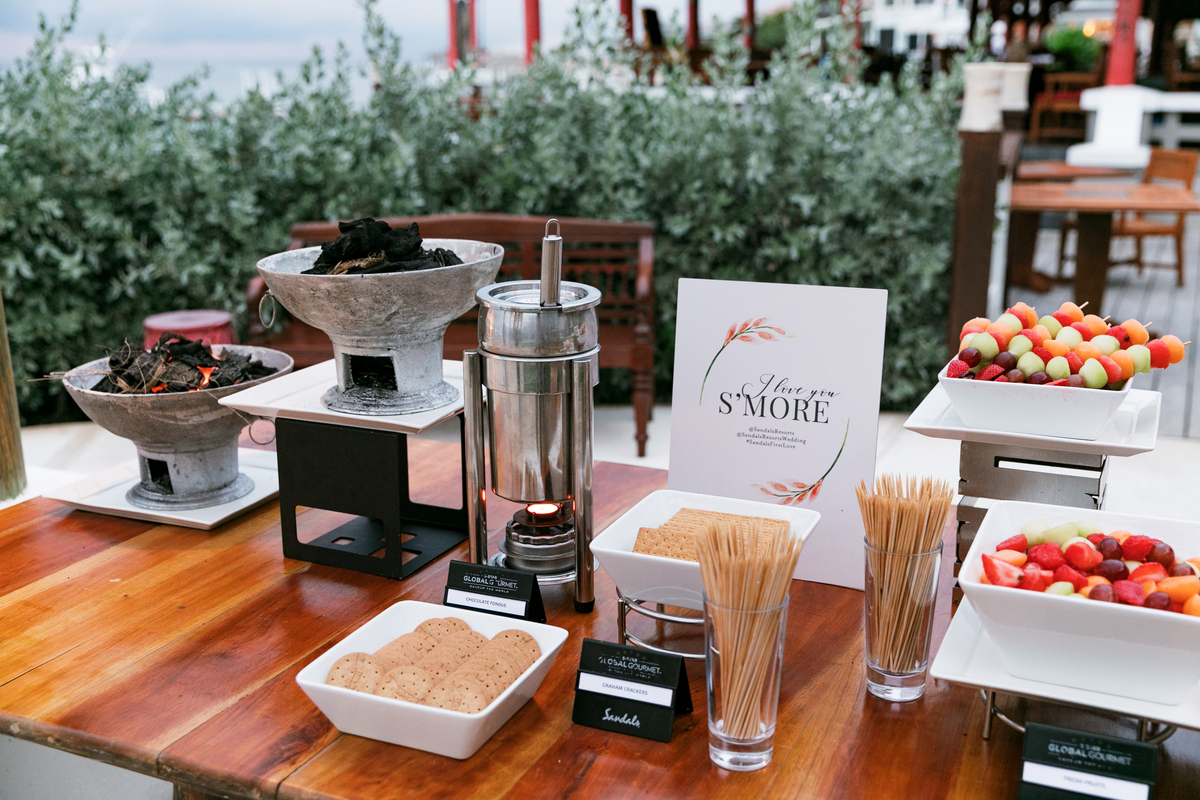
For your destination wedding, you’ll want to make sure there are food options for everyone. Ask about preferences during the RSVP process and find out about allergies; you can even share your menu in advance. Most caterers charge per person, so keep that in mind when putting together your guest list. Organise your wedding at an all-inclusive resort, and you often don’t have to worry about food and drinks at all.
Read more about the wedding menus at Sandals (the menus come with dedicated service to your group).
Read more about the dining options that are already included at Sandals.
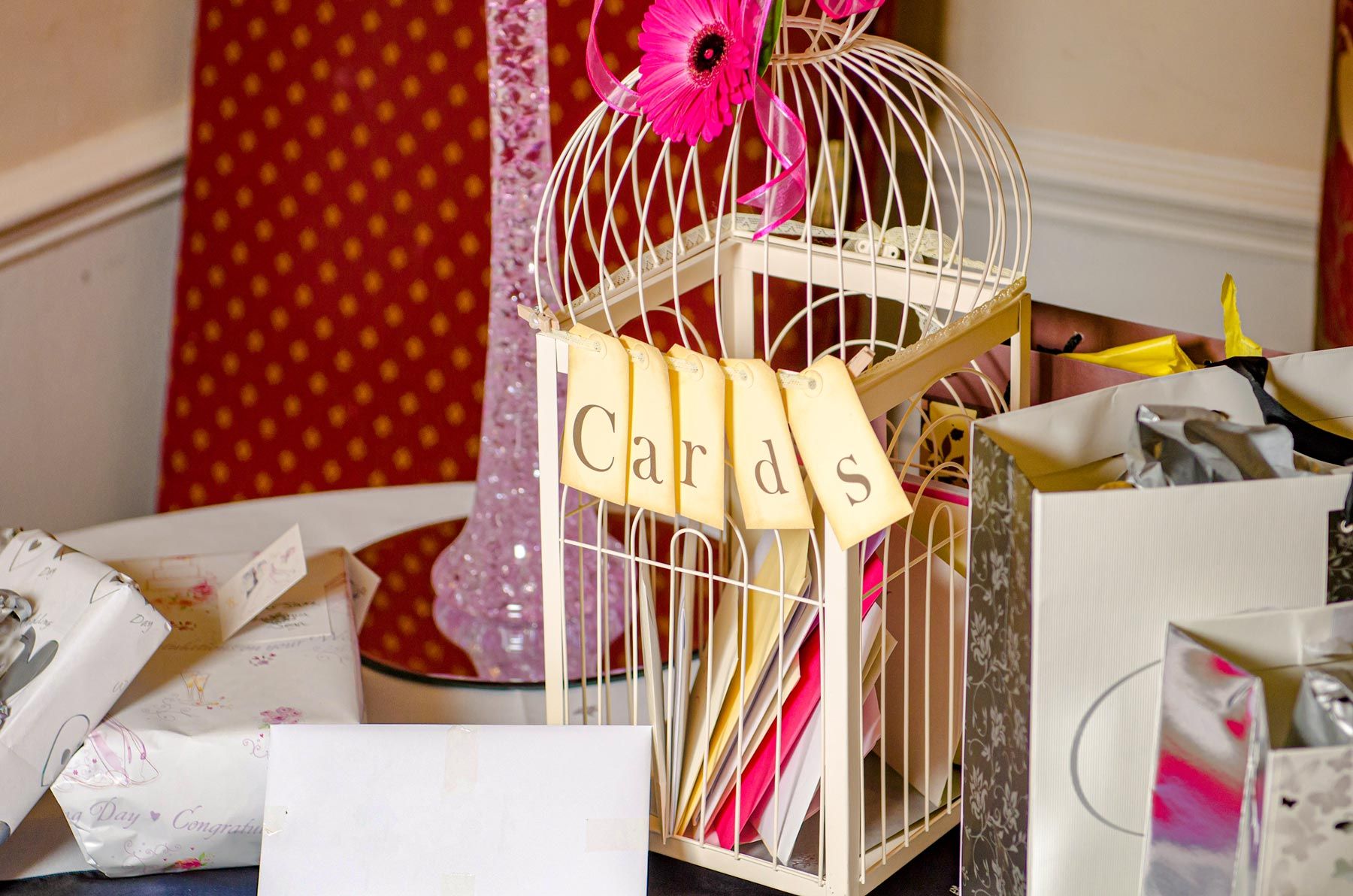
This is the perfect place for guests to leave sweet notes, gift cards, and other little trinkets. Put this box in a safe place, which is also easy to spot when guests walk in. Leave someone from your wedding party in charge of this area, so everyone who comes in knows what goes where. This person can also put the box away somewhere safe once all deposits are made.
Wedding photos are half the fun, and you’ll have to budget carefully for this. Think about whether you want a professional (recommended), or if this job can be done by a family member or friend. Most resorts offer this service, some at added cost. Tell your photographer in advance the kind of photos you’re looking for, and how involved you’d like them to be in directing the shots.
Planning a destination wedding can be challenging, but these helpful steps may help you stay on top of things, ahead of your wedding event. Planning an all-inclusive resort wedding at Sandals? Let our professional wedding planners help you and call 1-877-263257.